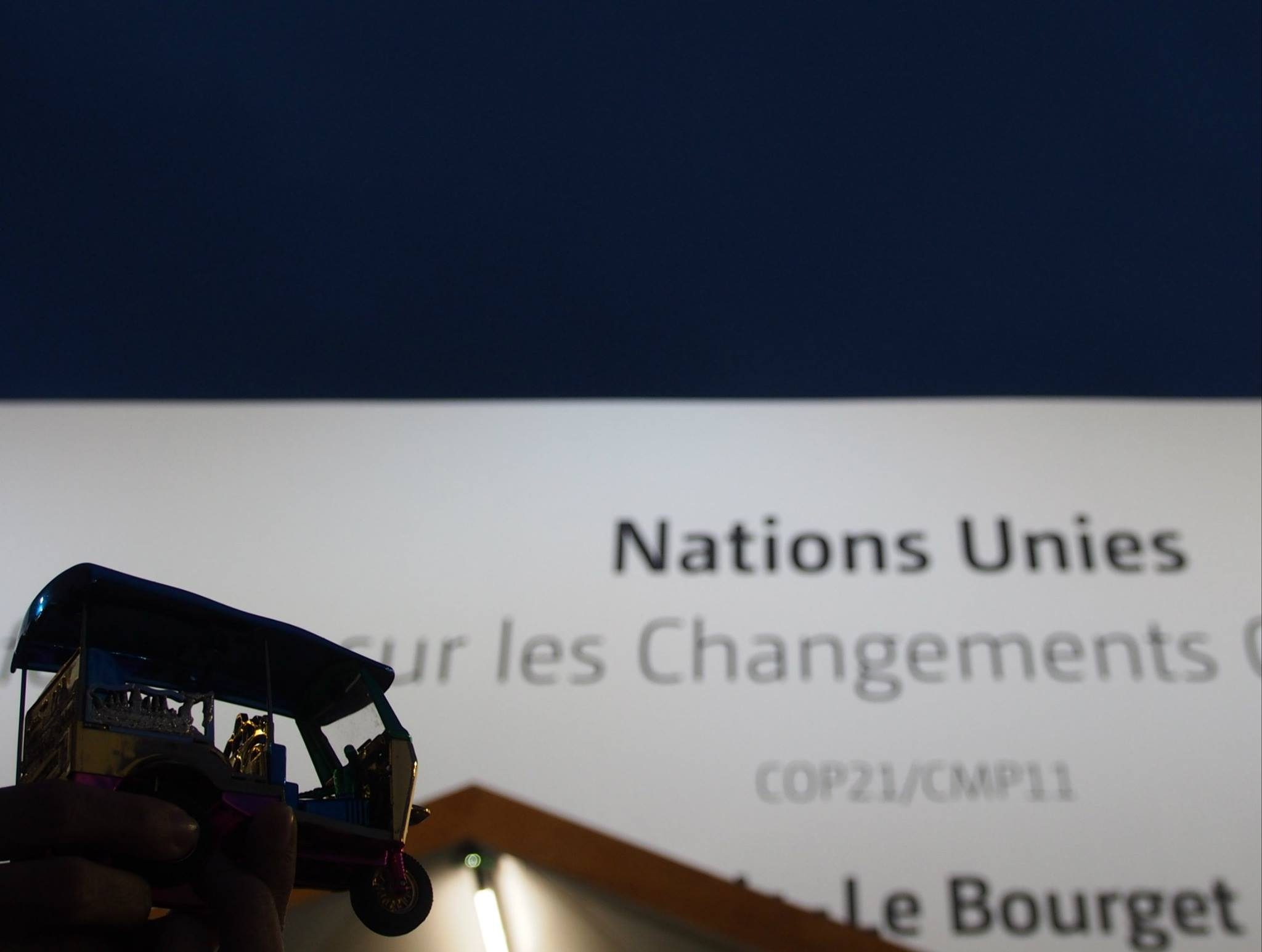SUMMARY
This is AI generated summarization, which may have errors. For context, always refer to the full article.

LE BOURGET, France – Calls for strong adaptation for Asian countries mounted after the release of the latest draft of the Paris climate deal last Saturday, December 5.
The 21-page draft climate agreement puts climate change adaptation inside brackets meaning it will still be negotiated by ministers and has a danger of being deleted.
According to Oxfam’s 2014 report titled “Can’t Afford to Wait: Why Disaster Risk Reduction and Climate Change Adaptation plans in Asia are failing millions of people,” the region accounted for 41% of recorded disasters and 64.5% of people affected by disasters globally.
Sea level rise, coastal flooding and saltwater intrusion related to climate change also threaten farming in major deltas, potentially affecting the lives and livelihood some 3.5 to 5 million people.
International organization Oxfam has been at the forefront of calls to address adaptation gaps for developing countries most of which are in Asia particularly member countries of the Association of Southeast Asian (ASEAN) countries.
“Poor communities in Asia bear the brunt and continue to suffer from the adverse effects of climate change that threaten food production and further exposing already marginalized communities to more vulnerabilities. And yet, these communities have the least responsibility for causing climate change,” said Oxfam’s GROW East Asia Policy and Research Coordinator Riza Bernabe.
‘Tuktuk’ goes to Paris
Oxfam’s GROW Campaign in East Asia which looks at land, food, climate change and smallholder farmers has been leading this call. In September this year, Oxfam launched a signature campaign called #TuktukToParis – calling on ASEAN governments to push for strong adaptation finance in the Paris climate deal.
“Tuktuk,” an iconic Thai mode of public transport was used to symbolize the message of Asians to their respective governments going into the landmark Paris climate deal. In the Philippines, the campaign was localized to Traysikel to Paris which featured Oxfam in the Philippines celebrity ambassadors restaurateur and food blogger Erwan Heussaff and band Up Dharma Down’s Armi Millare. The campaign is called “bajaj” in Indonesia, and kong bey in Cambodia. Vietnam joins the campaign through its bus or xe buyt di Paris.
A week before the COP 21, the signature drive reached 5,000 signatures through online and social media promotion as well as on-ground signature drive across ASEAN member countries.
Bernabe, who is also one of the members of the Philippine delegation, presented the signatures collected to various ministers of ASEAN member countries since the start of COP 21.
Adaptation in climate deal
Climate change adaptation was first brought up during COP 10 in Buenos Aires, Argentina in 2004. Owing to the worsening impacts of climate change, mitigation alone was seen as not enough. Adaptation has always been a contentious issue in the negotiations with developed countries dodging responsibility to make adaptation work for developing countries who emit less carbon emissions but are more vulnerable and have low capacity to adapt.
Although ASEAN as a regional cooperation bloc has been stable and strong since its establishment in the 1960s, it still a loose organization especially in the UNFCCC. For example, the Philippines is a member of the G77+China while Singapore is a member of the Alliance of Small Island States (AIOSIS). Malaysia, on the other hand, has been a strong voice within the Like-Minded Developing Countries (LMDC).
According to Prof. Mural Arsel who teaches Global Environmental Politics at the Institute of Social Studies in The Hague, Netherlands, Asia is a big and diverse region with countries have varying interests. However, he believes that geopolitics should not be a hindrance towards ensuring local communities’ resilience against climate change impacts.
“Climate change is threatening Asia. Governments must work together and find consensus within their negotiating blocs to push for strong the welfare of Asians in the Paris deal,” he said.
In a statement issued last week before the climate negotiations, international organizations led by Christian Aid Philippines, Climate Watch Thailand, also sent the same message to ASEAN ministers attending COP 21.
The coalition said that ASEAN governments must address the adaptation gap by the public and private sector’s increased investments in adaptation projects.
- Climate finance to be available and more equitable between adaptation and mitigation with resources going to where climate action is most needed by Asian countries.
- National governments must commit to invest in adaptation by ensuring that it has specific allocation in national budgets.
– Rappler.com
Add a comment
How does this make you feel?
There are no comments yet. Add your comment to start the conversation.